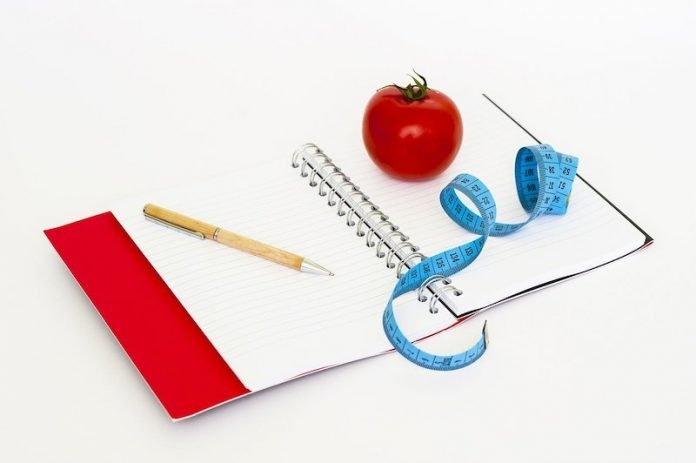
In a new study, researchers found that the single best predictor of weight loss success is monitoring and recording calorie and fat intake throughout the day, or “write it when you bite it.”
They suggest that the reality of dietary self-monitoring may be far less disagreeable than the perception.
The research was conducted by a team from the University of Vermont and elsewhere.
Dietary self-monitoring is widely viewed as so unpleasant and time-consuming, many would-be weight-losers can’t muster the will power to do it.
In the study, the team looked at the dietary self-monitoring habits of 142 participants in an online behavioral weight control intervention.
For 24 weeks, the participants met weekly for an online group session led by a trained dietician.
They also logged their daily food intake online, in the process leaving behind a record of how much time they spent on the activity and how often they logged in.
The people recorded the calories and fat for all foods and beverages they consumed, as well as the portion sizes and the preparation methods.
The team found after six months of monitoring their dietary intake, the most successful participants in an online behavioral weight-loss program spent an average of just 14.6 minutes per day on the activity.
These participants lost 10% of their body weight — the most successful members of the cohort — spent an average of 23.2 minutes per day on self-monitoring in the first month of the program.
By the sixth month, the time had dropped to 14.6 minutes.
What was most predictive of weight-loss success was not the time spent monitoring — those who took more time and included more detail did not have better outcomes — but the frequency of log-ins, confirming the conclusions of earlier studies.
The team says those who self-monitored three or more time per day and were consistent day after day, were the most successful.
It seems to be the act of self-monitoring itself that makes the difference — not the time spent or the details included.
With online dietary monitoring apps like LoseIt, Calorie King and My Fitness Pal widely available, the team hopes the study results motivate more people to adopt dietary self-monitoring as a weight-loss strategy.
The study is the first to quantify the amount of time that dietary self-monitoring actually takes for those who successfully lose weight.
The lead author of the study is Jean Harvey, chair of the Nutrition and Food Sciences Department at the University of Vermont.
The study is published in Obesity.
Copyright © 2019 Knowridge Science Report. All rights reserved.



